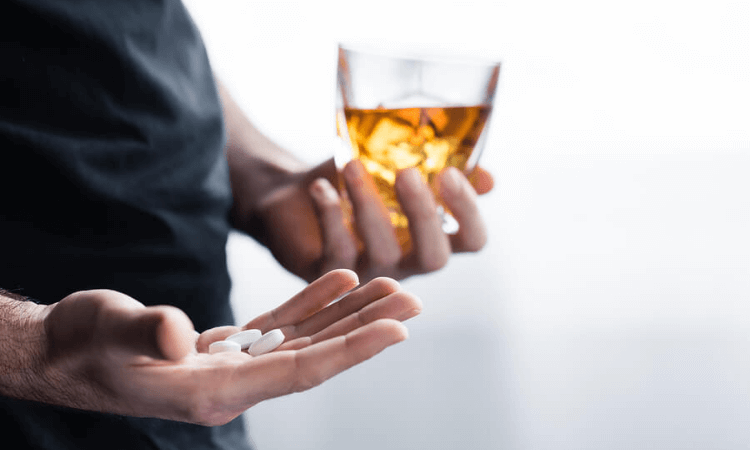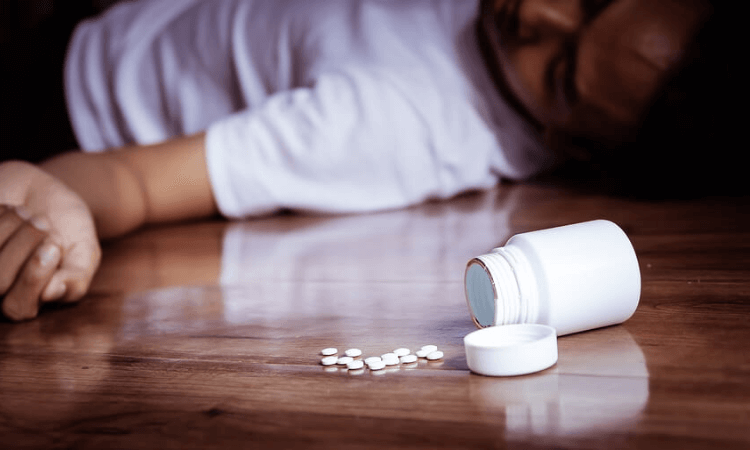
Ativan (lorazepam) is a prescription benzodiazepine and central nervous system (CNS) depressant intended for the treatment of anxiety and panic disorders. Alcohol is also a CNS depressant that, when abused, can cause profound intoxication and lethal effects.
Because both substances depress activity in the CNS, combining Ativan with alcohol can result in perilously slow breathing and heart rate. Their compounded effects can result in unpredictable complications, as well as a full-blown, life-threatening overdose.
Abuse of Ativan and Alcohol
The Centers for Disease Control and Prevention (CDC) reports that around 88,000 people die each year due to causes related to alcohol. Many of these fatalities are the result of mixing alcohol with other intoxicating substances, including prescription painkillers. What’s more, many people drink alcohol while using sedatives, such as benzodiazepines or barbiturates.
Ativan is one of the most commonly prescribed and abused drugs in the U.S. It is a high-potency benzodiazepine with a relatively short half-life, compared to other benzos. As with many other prescription medications, Ativan is generally only prescribed for short-term use.
When a patient is prescribed Ativan, the doctor should advise against consuming alcohol while using the medication. Unfortunately, many people ignore the warnings and experience tragic consequences. Furthermore, many people find that they have become dependent upon or addicted to this drug.
Large amounts of either alcohol or Ativan can produce effects that can become life-threatening. For example, according to the Drug Abuse Warning Network (DAWN), during the seven years from 2005-2011, 943,032 emergency department visits involved benzodiazepines alone or in conjunction with opioid pain relievers or alcohol.
Short- and Long-term Side Effects of Alcohol
- Slurred speech
- Drowsiness
- Nausea
- Vomiting
- Diarrhea
- Distorted vision/hearing
- Lowered inhibitions
- Impaired judgment
- Impaired coordination
- Breathing difficulties
- Alcohol poisoning
- Blackouts/memory loss
- Unconsciousness
- Liver disease
- Nerve damage
- Heart disease
- Pancreatitis
- Increased cancer risk
Short-and Long-Term Side Effects of Ativan
- Drowsiness and fatigue
- Dizziness
- Disorientation
- Headache
- Muscle weakness
- Impaired coordination
- Insomnia
- Impaired memory
- Nausea and vomiting
- Lack of appetite
- Blurred vision
- Difficulty concentrating
- Learning difficulties
- Mouth sores
- Abdominal bleeding
- Kidney problems
- Headaches
- Seizures
Ativan and alcohol induce many of the same side effects. Therefore, when the two substances are used in conjunction, the effects can increase exponentially.

Specific Dangers of Mixing Ativan and Alcohol
One of the most significant dangers of combining Ativan and alcohol is the risk of slowed respiration that ultimately results in death. These symptoms occur because both alcohol and Ativan have sedating properties.
Also, alcohol initially increases dopamine, which can induce effects that feel like energy and well-being. However, over time, continued alcohol consumption produces less stimulating effects, and sedation takes over. If someone uses Ativan with alcohol, the boost in dopamine can temporarily mask the depressant effects that are beginning to occur.
This stimulating effect of alcohol is very dangerous because a person may be at risk for severe CNS depression long before tell-tale signs begin to emerge. Using both substances together can, therefore, end up compounding depressive effects on the CNS, which can lead to a variety of symptoms, including the following:
- Sluggishness
- Delusions
- Mania
- Respiratory depression
- Severe confusion
- Dangerous mood swings
- Severe depression
- Suicidal ideations
- Loss of consciousness
Many people, especially adolescents and young adults, are unaware of the risks involved with mixing prescription medications such as Ativan with alcohol. Moreover, these people may erroneously assume the drugs are safe because doctors frequently prescribe them. Likewise, many people also mistakenly believe that alcohol is safe because it is legal, and almost everyone partakes at some point in their lives.
How to Stop Abusing Ativan and Alcohol
Long-term abuse of alcohol places a person at risk of severe withdrawal symptoms when they attempt to discontinue use. Similarly, a person who tries to stop using Ativan abruptly will also experience symptoms comparable to alcohol withdrawals.
Ativan withdrawal symptoms can include, but are not limited to, the following:
- Tremors
- Intense cravings
- Headaches
- Dizziness
- Nausea and vomiting
- Restlessness
- Agitation
- Anxiety and panic attacks
- Loss of appetite
- Weight loss
- High blood pressure
- Accelerated heart rate
- Sweating
- Cramps
- Seizures
Getting Treatment for Addiction
If you or someone you love is suffering from alcohol or Ativan addiction, please seek professional treatment as soon as possible. Research has shown that the best approach to successfully overcome an addiction is through the use of long-term, comprehensive, evidence-based treatment.
Our outpatient programs include services such as behavioral therapy, individual and group counseling, group support, and much more. We help clients develop the coping skills they need to deal with stress and triggers without resorting to the use of addictive substances.
To learn more about treatment options for drug or alcohol addiction, contact Recovery in Tune today! We are dedicated to helping people reclaim the healthy, fulfilling lives they deserve!